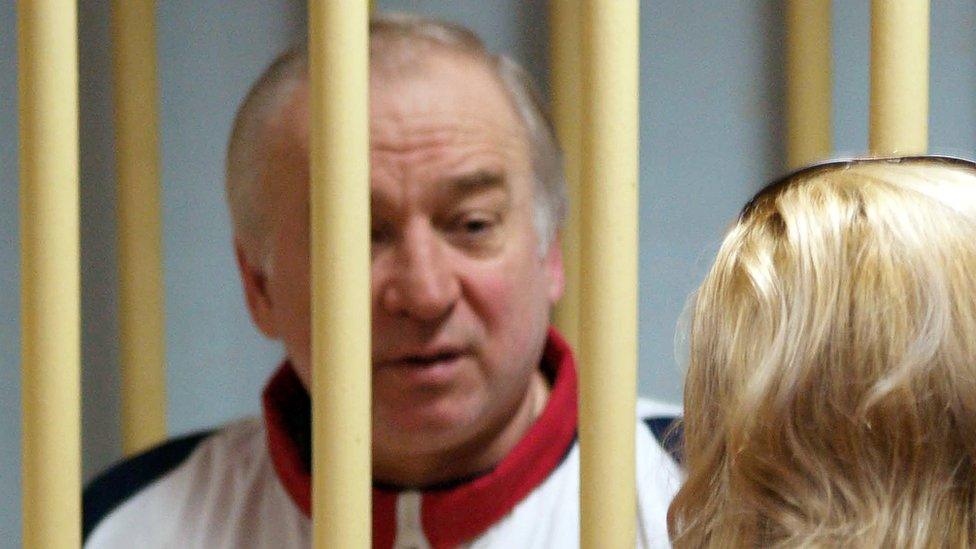Spy poisoning: How is the UK retaliating against Russia?
- Published
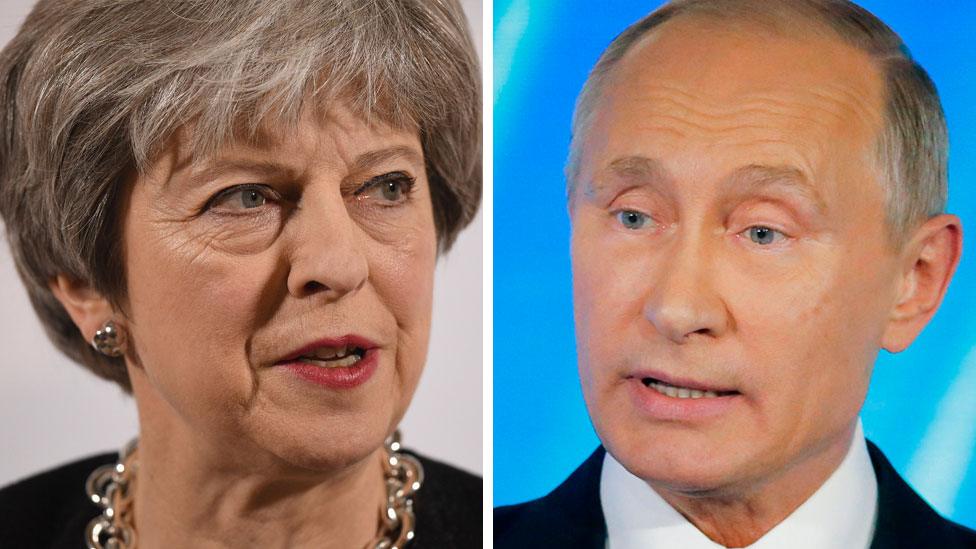
UK Prime Minister Theresa May has announced the expulsion of 23 Russian diplomats in retaliation for the attack on a former spy and his daughter who were poisoned on British soil with a military-grade nerve agent.
"There is no alternative conclusion other than that the Russian state was culpable," Mrs May told Parliament, calling it "an unlawful use of force".
Russia has denied involvement in the attempted murder of Sergei Skripal, 66, and his daughter, Yulia, 33, on 4 March.
What has been announced?
The 23 diplomats identified as "undeclared intelligence officers" were given one week to leave, in the largest mass expulsion in the UK in more than 30 years.
The Russian embassy said the decision was "unacceptable, unjustified and short-sighted".
Other measures included:
Increased checks on private flights, customs and freight
The freezing of Russian state assets where there is evidence they may be used to threaten the life or property of UK nationals or residents
Ministers and Royal Family members to boycott the World Cup in Russia later this year
The suspension of all planned high level bilateral contacts between the UK and Russia
Plans to consider new laws to increase defences against "hostile state activity". This could come through a British version of the 2012 US Magnitsky act, which punishes Russians involved in corruption and human rights violations with asset freezes and travel bans. MPs have pushed for a Magnitsky amendment to be added to the Sanctions and Anti-Money Laundering Bill going through Parliament
What else could the UK do?
Take some sort of action to bar wealthy Russian oligarchs from accessing their mansions and other luxuries in London, as suggested by Tory MP and House of Commons foreign affairs committee chair Tom Tugendhat. One way this could happen is through the use of Unexplained Wealth Orders, which allow government officials to seize assets including property until they have been properly accounted for
Taking Russian broadcasters such as RT (formerly Russia Today) off the air. Moscow has threatened to bar all British media from working in Russia if RT is targeted
Allow X content?
This article contains content provided by X. We ask for your permission before anything is loaded, as they may be using cookies and other technologies. You may want to read X’s cookie policy, external and privacy policy, external before accepting. To view this content choose ‘accept and continue’.
Could the EU impose new sanctions?
Current sanctions on Russia that Britain supports, external are imposed via the European Union, and target Russia's state finances, energy and arms sectors.
They were first passed after Russia annexed Ukraine's Crimean peninsula in 2014 and backed rebels fighting in eastern Ukraine, and include:
The exclusion of state banks from raising long-term loans in the EU
A ban on exports of dual-use equipment that could be put to military use and a ban on EU-Russia arms deals
A ban on exports of a wide range of oil industry technology
Asset freezes and travel bans on 150 people and 38 companies
Vladimir Putin is challenged by the BBC over the Skripal poisoning
EU countries are already divided on the sanctions and some doubt whether Britain could convince the bloc to further toughen its measures, especially as it prepares to leave the union.
The bloc will discuss the issue in a meeting next week, European Council President Donald Tusk said, calling it a "brutal attack inspired most likely by Moscow".
Could Nato act?
By framing the poisoning as a possible "unlawful use of force" by Russia, Theresa May prompted questions as to whether this could be a matter for Nato, the military alliance of 29 countries.
The alliance's policy of collective defence - under Article 5 - states that an attack on any one ally is seen as an attack on all.
It was invoked for the first and only time by the United States after the 9/11 attacks.
Theresa May: Spy poisoned by "military-grade nerve agent"
But Downing Street has played down suggestions that this is an Article 5 matter.
For its part, Nato urged Russia to answer the UK's questions, expressing "deep concern" over the "first offensive use of a nerve agent on alliance territory" since its foundation.
What about the UK's allies?
The UN Security Council held an emergency meeting at the UK's request, where British deputy ambassador Jonathan Allen said Russia had used "a weapon so horrific that it is banned in war".
At the meeting US Ambassador Nikki Haley said: "The credibility of this council will not survive if we fail to hold Russia accountable."
And US President Donald Trump's spokeswoman Sarah Sanders has accused Russia of undermining the security of countries worldwide.
Mrs May has had phone discussions with French President Emmanuel Macron, and a statement from the country's embassy said "there is no other plausible explanation" than Russian involvement.
It added France expressed "solidarity regarding its ally".
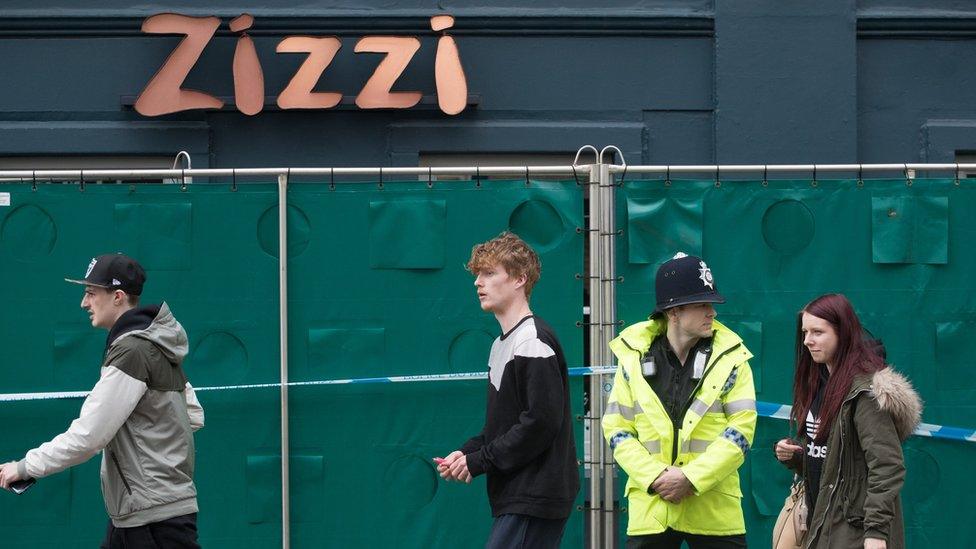
Police guard the Zizzi restaurant in Salisbury where traces of the nerve agent were found
The UK has asked Russia to provide a "full and complete disclosure" of the Novichok nerve agent programme to an international agency, the Organisation for the Prohibition of Chemical Weapons.
- Published14 March 2018
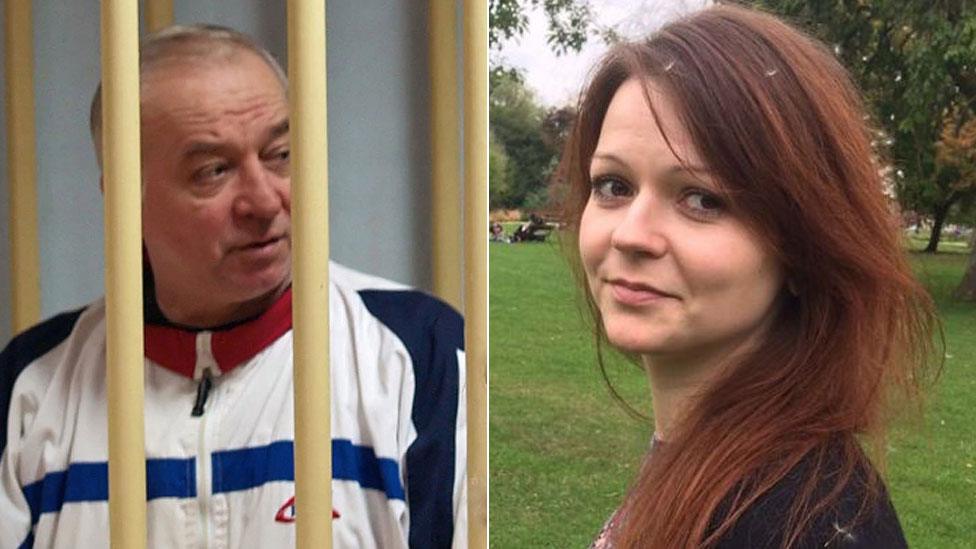
- Published13 March 2018
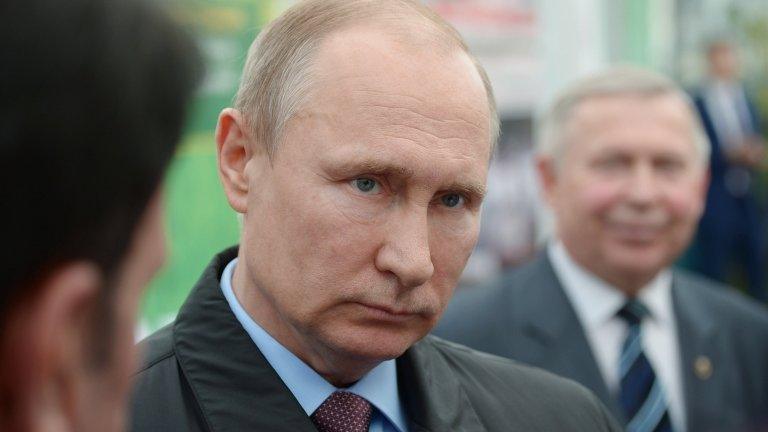
- Published12 March 2018
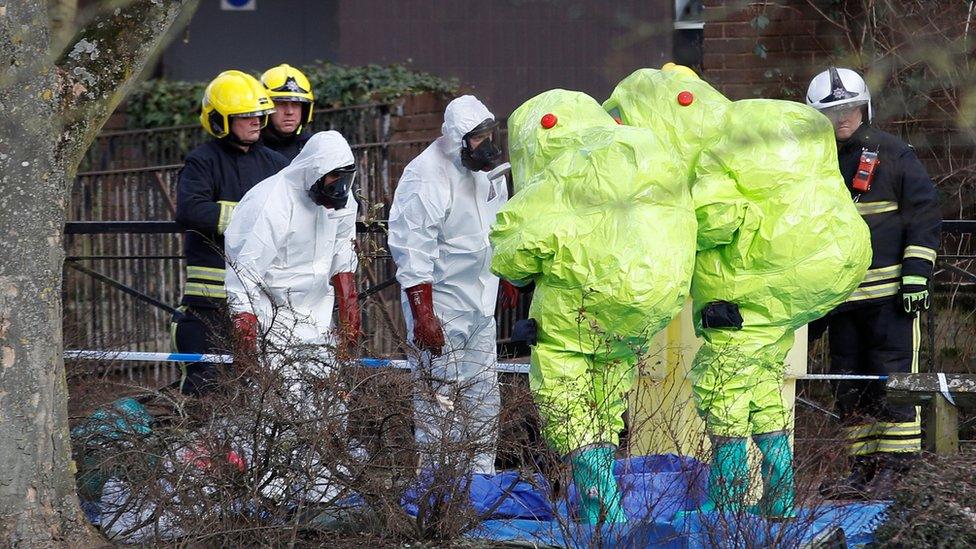
- Published10 March 2018
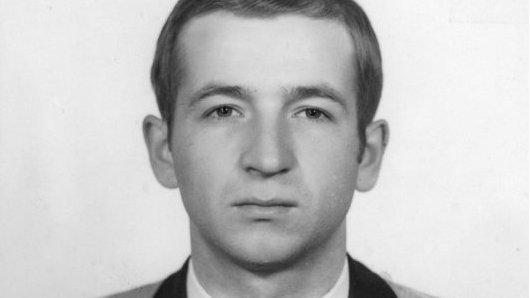
- Published12 March 2018
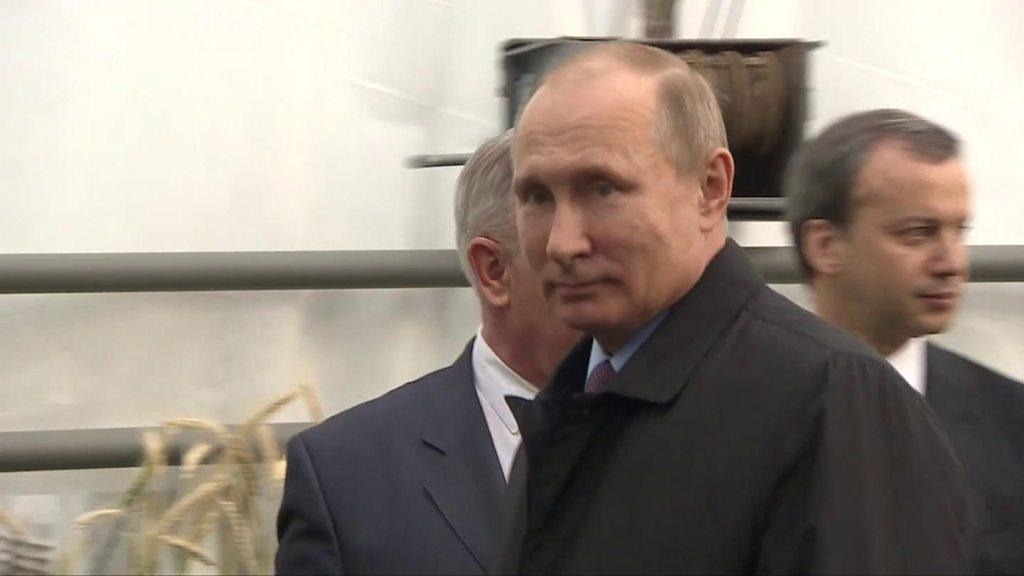
- Published13 March 2018
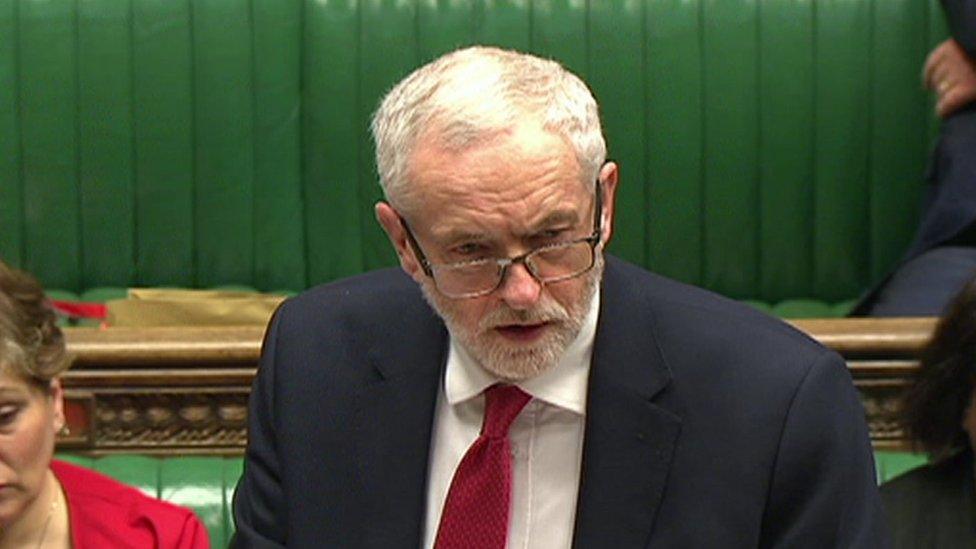
- Published12 March 2018
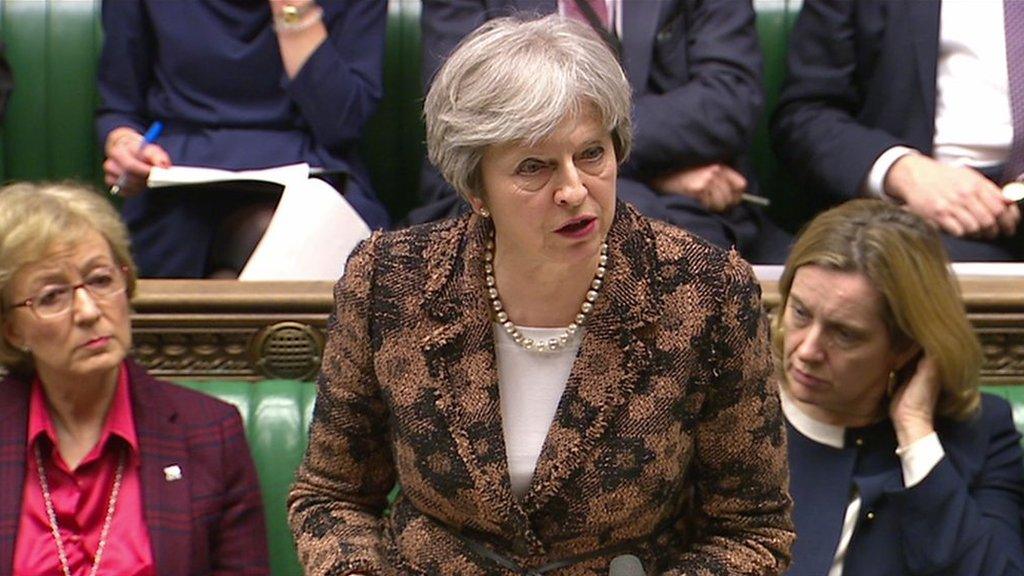
- Published2 September 2020
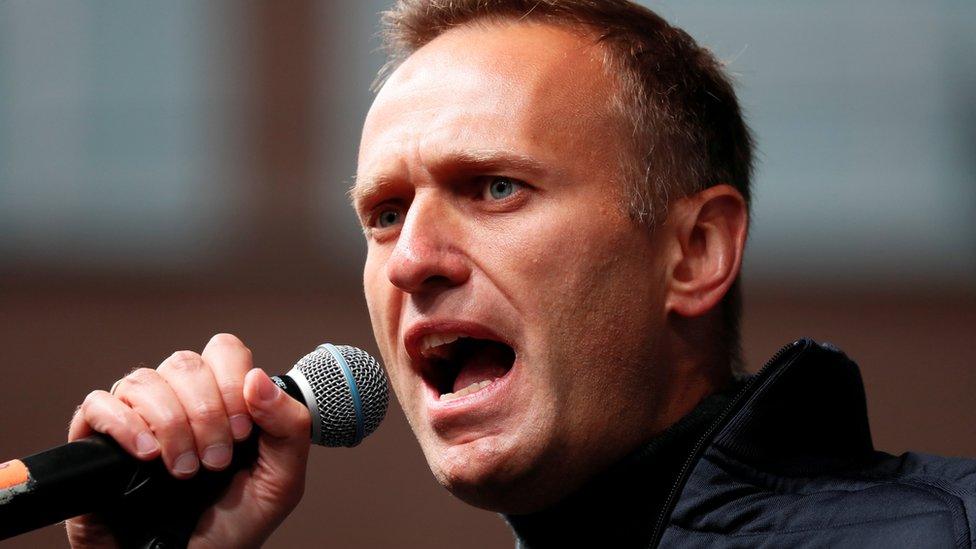
- Published8 October 2018
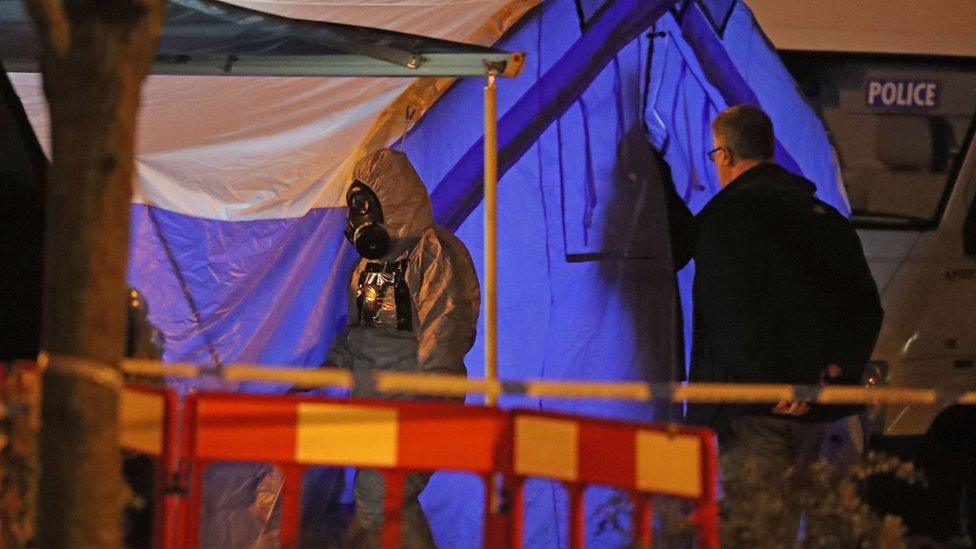
- Published10 March 2018
